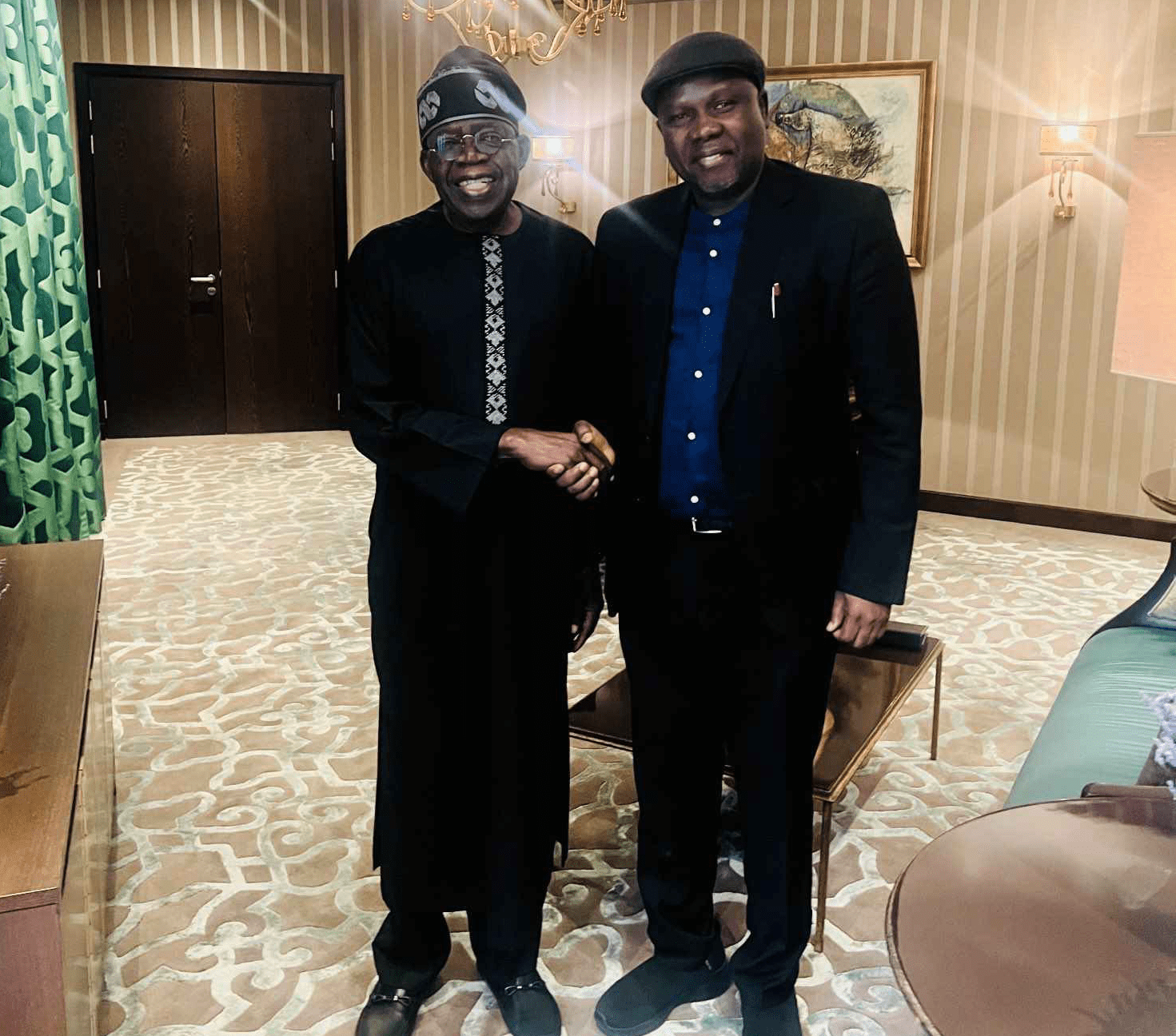Nigeria
Daniel Bwala And Tinubu Meet In Saudi Arabia

On Monday, April 29, Daniel Bwala, a former spokesperson for Atiku Abubakar, the presidential candidate of the Peoples Democratic Party (PDP) in the 2023 general election, had a meeting with President Bola Tinubu in Riyadh, Saudi Arabia.
Bwala confirmed this meeting in a post on his official X page, expressing his delight at meeting President Tinubu at the ongoing World Economic Forum in Riyadh.
He mentioned that President Tinubu delivered a well-defined agenda for Nigeria and the rest of the world through collaboration during the forum.
Their meeting in Saudi Arabia, a location often associated with religious pilgrimage and diplomatic engagements, has raised questions about the nature of their discussions and the potential implications for Nigerian politics. While details of their encounter remain undisclosed, speculations abound regarding possible collaborations, strategic alignments, or even disagreements between the two political heavyweights.
Daniel Bwala, known for his outspoken nature and critical perspectives on governance, may have used the opportunity to engage Tinubu on pressing national issues or to seek his counsel on matters of political strategy. Alternatively, Tinubu, being a seasoned politician with a wide network of alliances, might have initiated the meeting to explore avenues for consolidating political support or fostering alliances ahead of future elections.
Given Tinubu’s rumored presidential ambitions and his efforts to strengthen his political base across the country, the meeting with Daniel Bwala could signal a strategic move to garner support from influential figures outside his traditional power base in the southwest region. Bwala’s involvement could offer Tinubu insights into regional dynamics and grassroots sentiments in other parts of Nigeria, potentially enhancing his prospects in future political endeavors.
However, the meeting could also have broader implications for Nigeria’s political landscape, particularly in the context of ongoing debates about power shifts, regional representation, and the emergence of new political blocs. If Daniel Bwala, who hails from the northern region, decides to throw his weight behind Tinubu’s political ambitions, it could reshape existing power dynamics and influence the trajectory of national politics.
Moreover, the symbolism of their meeting in Saudi Arabia, a neutral ground outside the Nigerian political arena, adds another layer of intrigue. It suggests a deliberate effort to keep their discussions discreet and potentially avoid scrutiny or backlash from rival political factions or the public. However, such secrecy could fuel speculation and conspiracy theories, leading to further conjecture about the motives behind their rendezvous.
As news of their meeting spreads, political analysts and observers will closely monitor developments to discern any ripple effects or shifts in political alliances. The outcome of their discussions, whether revealed through official statements or inferred from subsequent political maneuvers, could provide valuable insights into the evolving dynamics of Nigerian politics and the strategies employed by key players to navigate its complexities.
